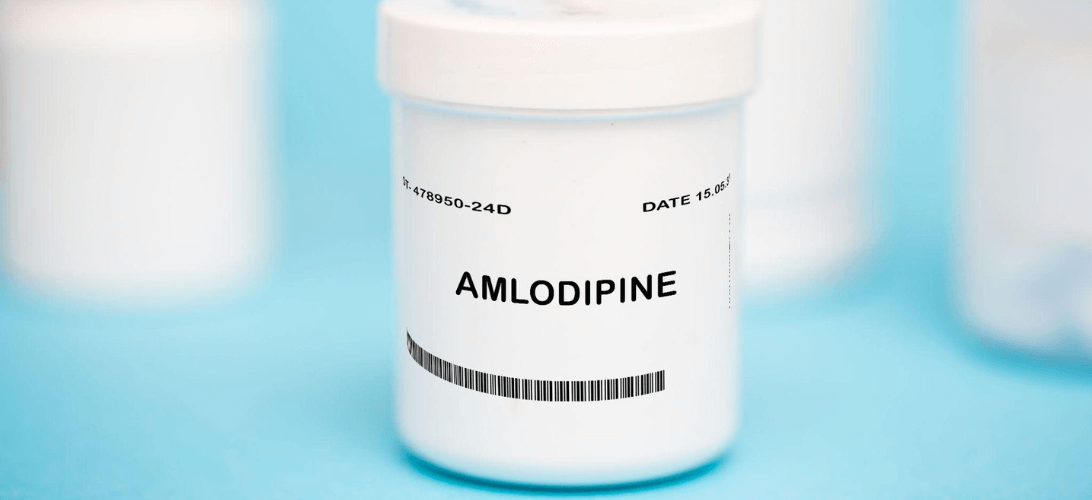Highlights
- A calcium channel blocker, amlodipine is generally used for angina and high blood pressure.
- Amlodipine is available in a wide range of formulas and combinations.
- Careful price comparisons can help you find the lowest price for amlodipine.
Amlodipine is a useful medication for managing high blood pressure, one of the most common ailments. Learn how amlodipine helps you keep your blood pressure under control, who should and shouldn’t use it, how to take it, and how to get the lowest price for amlodipine.
What Is Amlodipine and What Is It Used For?
Amlodipine is a calcium channel blocker used to treat angina and high blood pressure. It is sold under the brand names Norliqva and Katerzia but most commonly as Norvasc. Your doctor will likely recommend lifestyle changes, as well, such as a low-sodium diet and regular exercise.
How Does Amlodipine Work?
When calcium enters the cells in the heart and arteries, it narrows blood vessels. Calcium channel blockers like amlodipine help keep those vessels open by keeping calcium out of the cells.
What Formulas Are Available for Amlodipine?
Amlodipine is available in tablet form and as an oral suspension. It can also be formulated with other drugs used to treat high blood pressure, including ACE inhibitors, angiotensin II inhibitors, and renin inhibitors. Ask your doctor about these combinations, especially if you’re already taking medication to manage your blood pressure.
Amlodipine Dosage and Administration
Amlodipine prescriptions generally start at 5 milligrams and may go up to as high as 10 milligrams for a maintenance dose. Some patients may start at 2.5 milligrams, depending on other health factors.
How Should I Take Amlodipine?

Amlodipine is taken daily, at the same time each day. It can be taken with or without food and should be stored away from heat, light, and moisture. Oral suspensions should be refrigerated but never frozen.
Check your blood pressure regularly while taking amlodipine, and continue taking it as prescribed even if you feel better.
What Are the Potential Side Effects of Amlodipine?
Commonly, people taking amlodipine can experience:
- Dizziness
- Drowsiness
- Leg or ankle swelling
- Irregular, pounding, or fluttering heartbeat
- Muscle stiffness
- Uncontrollable muscle movements;
- Fatigue
- Stomach pain
- Nausea
- Flushing
Amlodipine can cause chest pain or even a heart attack in patients with severe heart or blood vessel disease. Lightheadedness or dizziness may also be an issue when you start taking amlodipine or raise your dose. If these effects are severe or don’t go away, contact your doctor. If the pain comes with a lightheaded feeling, seek medical attention as soon as possible.
In rare cases, amlodipine may cause a heart attack, and symptoms of a heart attack can be mistaken for amlodipine side effects. If you notice a feeling of pressure in your chest or pain radiating to your shoulder or jaw, get medical help immediately.
What Should I Avoid When Taking Amlodipine?
Because amlodipine lowers your blood pressure, you may be more prone to lightheadedness or fainting if you rise from a sitting or standing position too quickly. Practice a measured way to change positions to prevent lightheadedness, and don’t stand suddenly from a sitting or lying position.
Alcohol can lower your blood pressure, so limit your intake while using amlodipine.
What Should I Do If I Miss a Dose of Amlodipine?
If you forget to take your amlodipine and you’re within twelve hours of your usual dosage time, you can take it. If it’s twelve hours or later past your regular time, wait until the next day and continue with your normal dosing schedule. Never take a double dose of amlodipine.
What Should I Do If I Overdose on Amlodipine?
Signs of amlodipine overdose include:
- Redness or a warmth in your limbs
- Rapid heartbeat
- Fainting or lightheadedness
If you’re experiencing these symptoms, contact poison control immediately and seek medical attention.
Who Should Not Take Amlodipine?
If you’ve had any of the following, make sure your doctor is aware of it before you begin using amlodipine:
- Aortic stenosis, a narrowing of the aorta, a heart valve
- Personal or family history of coronary artery disease (CAD)
- Personal or family history of liver disease
There is not a lot of information available about the safety of amlodipine during pregnancy, but is is generally considered safe for pregnant women. Pregnant or breast-feeding women should talk to their doctor, who will weigh the risks and benefits of taking this medication.
Are There any Potential Drug Interactions With Amlodipine?

Review any medications and supplements you’re taking with your doctor before starting amlodipine, as it has a number of major documented interactions with certain classes of medication:
- Antibiotics. Some antibiotics may have a vasodilator effect, raising the risk of a sudden and dangerous drop in blood pressure. Others may affect how amlodipine is processed by the liver.
- Other calcium channel blockers. Combining calcium channel blockers raises the risk of blood pressure dropping suddenly.
- Antifungal medications. These can interfere with the liver processing amlodipine, raising the amount in your blood.
- Immunosuppressants. Calcium channel blockers can have mild immunosuppressant effects, which can combine with dedicated immunosuppressants to cause problems.
- Anti-epilepsy medicines. Amlodipine can increase the effects of these medications.
- Simvastatin in doses over 20 milligrams. Amlodipine can inhibit the body from breaking down simvastatin. from being broken down in the body.
- Multivitamins. Some formulations of multivitamin may interfere with amlodipine. Ask your doctor about possible issues, and bring your multivitamin bottle with you for review.
Whenever considering a new medication, check the prescribing information for possible effects — like relaxing of the blood vessels or interacting with liver enzymes — and review it with your doctor before taking. These effects are generally minor, but you should be aware of them.
Before starting amlodipine, discontinue taking any herbal supplements. While the vast majority of supplements may be safe, there’s both a risk of their being tainted with pharmaceuticals and a potentially undocumented interaction. In particular, avoid any herbs that may have a vasodilator effect.
No list of potential drug interactions is complete. If you experience any new or concerning symptoms after beginning amlodipine, contact your doctor right away.
Get the Lowest Price for Amlodipine With BidRx
Keeping your blood pressure under control shouldn’t be a stressful experience. BidRx helps you find the lowest price for amlodipine and other medications by putting you in the driver’s seat. Pharmacists come to you and offer their lowest price, and you pick the best option to be shipped straight to your door.
To get started on reducing the cost of your prescriptions, visit our customer page to create your bid today!
